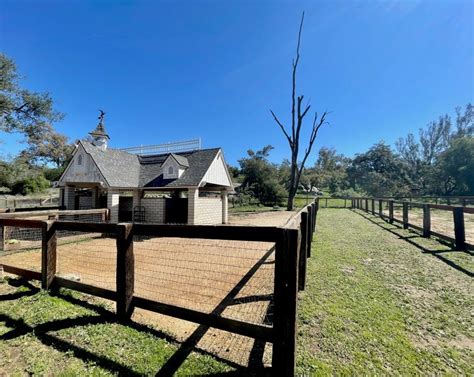Unlocking Affordable Horse Boarding Options: A Comprehensive Guide
Finding the right boarding facility for your horse can be a significant financial commitment. However, affordable horse boarding doesn't have to mean compromising on quality care. This comprehensive guide explores various options and strategies to help you unlock affordable horse boarding options without sacrificing your horse's well-being.
What are the Different Types of Horse Boarding?
Understanding the different types of boarding is crucial for finding an affordable option. Costs vary significantly depending on the level of service provided.
1. Full-Care Boarding: This typically includes stall cleaning, feeding (twice daily), pasture turnout, and basic health monitoring. It's the most expensive option but offers the most convenience.
2. Partial-Care Boarding: This involves the owner sharing some of the responsibilities, such as mucking stalls or feeding. This reduces the cost compared to full-care boarding.
3. Self-Care Boarding: This option requires the owner to handle all aspects of their horse's care, including daily feeding, cleaning stalls, and providing pasture turnout. It's the most affordable option but demands significant time and effort.
4. Pasture Boarding: This option typically involves your horse living in a pasture with minimal human interaction. It's often the most budget-friendly option but may not be suitable for all horses, particularly those requiring special dietary needs or health monitoring.
How to Find Affordable Horse Boarding Near Me?
Finding affordable boarding requires research and strategic planning. Here are some tips:
- Consider Location: Boarding costs vary greatly depending on the location. Facilities in rural areas are generally cheaper than those closer to cities.
- Negotiate: Don't hesitate to negotiate the price, especially if you're committing to a long-term contract.
- Look for Smaller Facilities: Smaller facilities often have lower overhead costs, which can translate to lower boarding fees.
- Check for Seasonal Discounts: Some facilities offer discounts during the off-season.
- Consider Sharing Responsibilities: Offering to help with chores like mucking stalls or assisting with other horses can often reduce boarding fees.
- Explore Bartering Options: If you have skills like carpentry, fencing, or landscaping, you might be able to barter services for discounted boarding.
What are the Hidden Costs of Horse Boarding?
While the monthly boarding fee is the most obvious cost, remember to factor in these additional expenses:
- Farrier: Regular hoof care is essential.
- Veterinary Care: Unexpected veterinary bills can be substantial.
- Dental Care: Regular dental checkups and care are necessary for your horse's health.
- Tack and Equipment: Initial investment and ongoing maintenance of saddles, bridles, and other equipment.
- Feed and Supplements: The cost of hay, grain, and supplements can add up.
- Worming and Vaccinations: Preventative healthcare is crucial.
How Can I Reduce Horse Boarding Costs?
Several strategies can help you manage and reduce your overall boarding costs:
- Buy Hay in Bulk: Purchasing hay in larger quantities can often reduce per-bale costs.
- Source Feed and Supplements Wisely: Compare prices from different suppliers and consider buying in bulk.
- DIY Projects: Undertaking minor repairs or maintenance around the barn can save on facility costs.
- Share Resources: Pooling resources with other boarders for purchasing feed or sharing equipment can be beneficial.
- Create a Realistic Budget: Develop a comprehensive budget that includes all anticipated and potential expenses.
Is Pasture Boarding Cheaper Than Stall Boarding?
Yes, pasture boarding is typically cheaper than stall boarding because it requires less facility maintenance and labor. However, it may not be suitable for all horses, especially those requiring specific dietary needs or more direct care.
What are the Advantages and Disadvantages of Self-Care Boarding?
Advantages: Self-care boarding is the most affordable option, providing complete control over your horse's care. Disadvantages: It demands a significant time commitment and requires you to handle all aspects of your horse's care, including potentially unpleasant tasks.
By understanding the different types of horse boarding, exploring cost-saving strategies, and planning carefully, you can find an affordable option that meets both your budget and your horse's needs. Remember to prioritize your horse's well-being and establish open communication with the boarding facility to ensure a positive and successful partnership.

